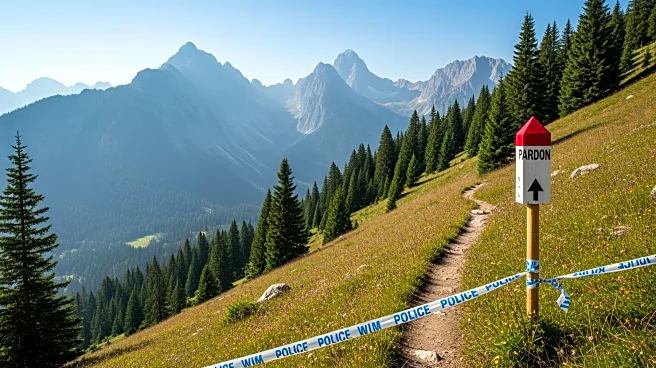What's Happening?
President Donald Trump has pardoned Michelino Sunseri, a trail runner who took a brief detour on a prohibited trail during his record-setting run up and down Grand Teton in Wyoming. Sunseri completed the
challenging 13.3-mile run, which included a 7,000-foot elevation gain, in 2 hours, 50 minutes, and 50 seconds. His detour, intended to avoid casual hikers, led to a misdemeanor conviction for going off-trail, which can cause erosion in national parks. Prior to the pardon, Sunseri was set to complete community service and a wilderness stewardship course as part of a deal with prosecutors.
Why It's Important?
The pardon granted by President Trump highlights ongoing discussions about the criminalization of minor offenses in national parks. Sunseri's case has drawn attention to the balance between preserving natural landscapes and accommodating recreational activities. The pardon may influence future policies regarding park regulations and enforcement, as both Democrats and Republicans have expressed concerns about overcriminalization. This decision could impact how minor infractions are handled in national parks, potentially leading to changes in legal and regulatory approaches.
What's Next?
The pardon effectively nullifies the legal proceedings against Sunseri, allowing him to avoid further penalties. This outcome may prompt discussions among policymakers and park authorities about revising regulations and enforcement practices in national parks. Stakeholders, including environmental groups and recreational organizations, may advocate for clearer guidelines and education on responsible park usage. The case could also influence public perception of national park regulations, encouraging dialogue on how best to balance conservation efforts with recreational access.
Beyond the Headlines
Sunseri's pardon raises broader questions about the role of presidential pardons in addressing minor legal infractions. The decision may spark debates about the use of executive power in legal matters, particularly in cases that are not politically motivated. Additionally, the case highlights the cultural significance of outdoor recreation and the challenges of maintaining natural environments amid increasing public use. As national parks continue to attract visitors, the need for sustainable practices and education on environmental stewardship becomes increasingly important.









